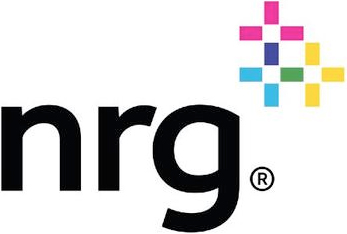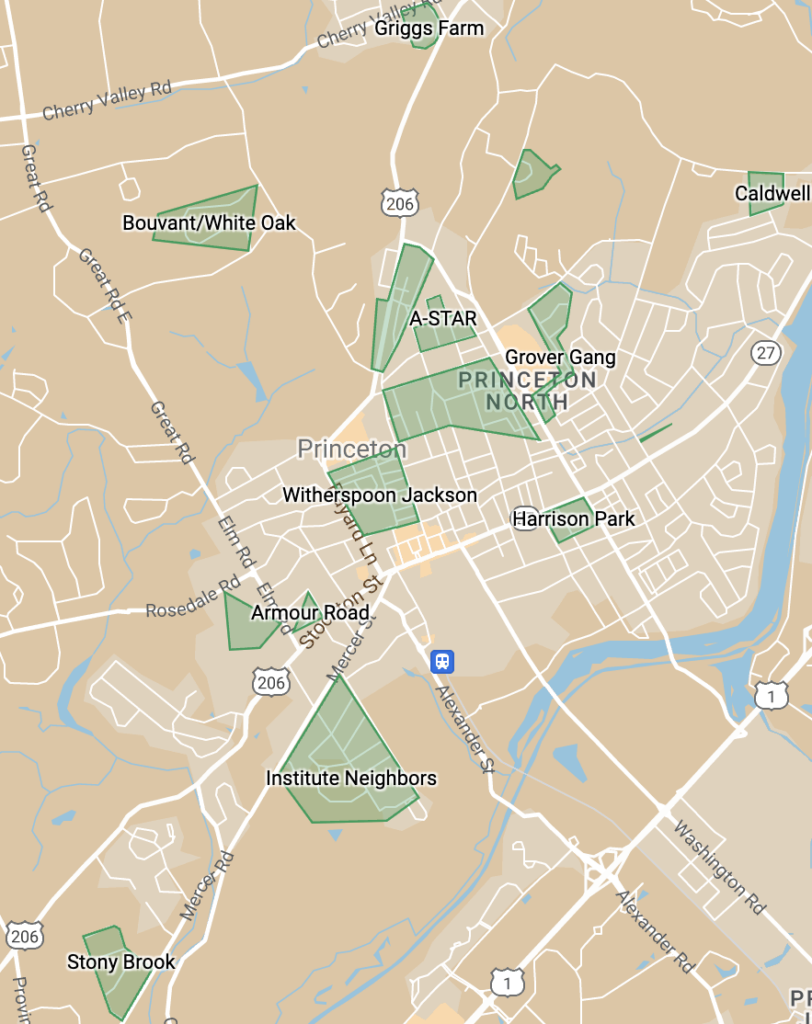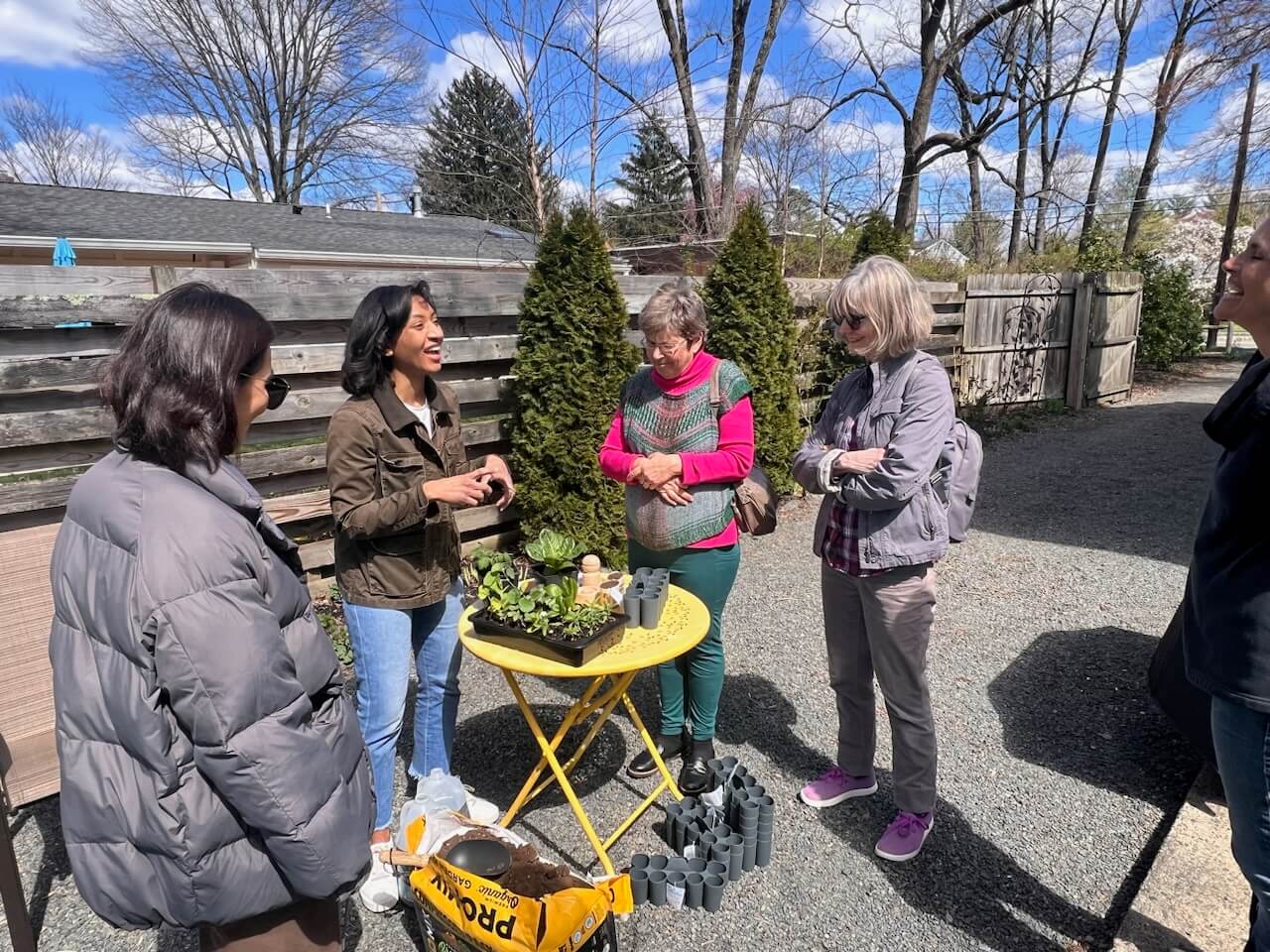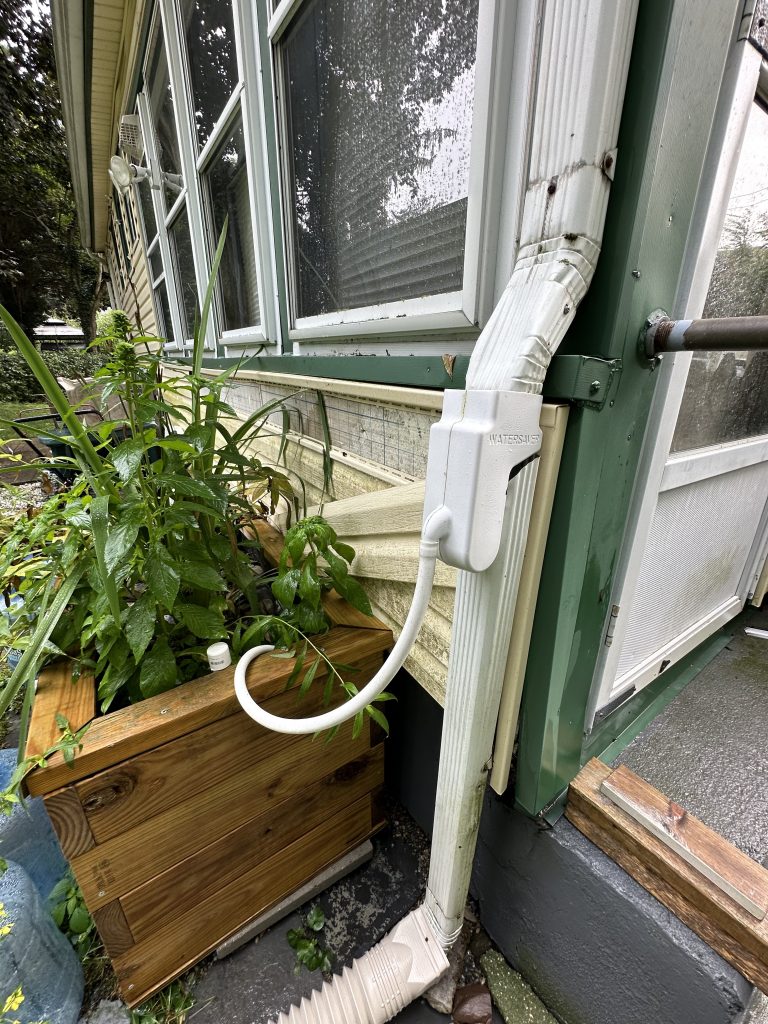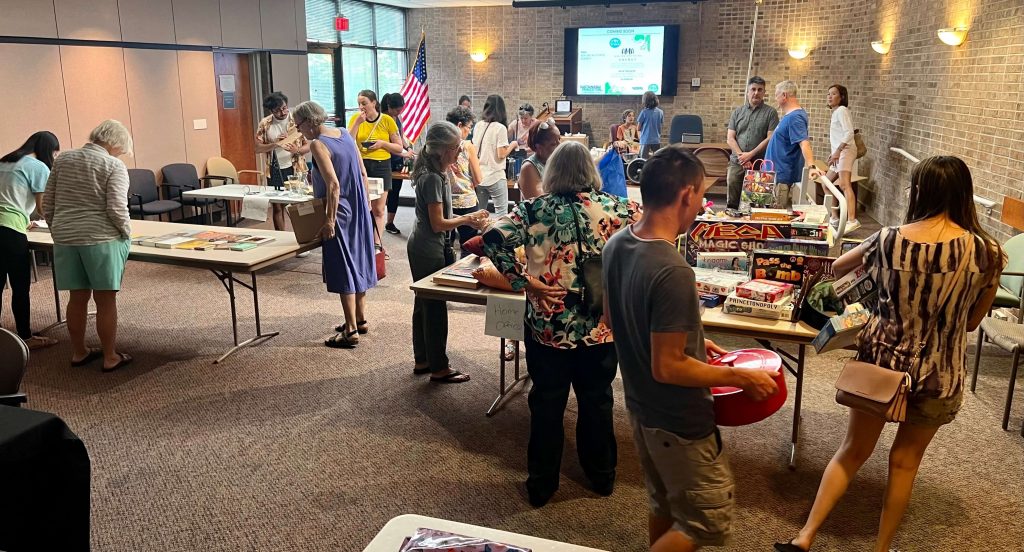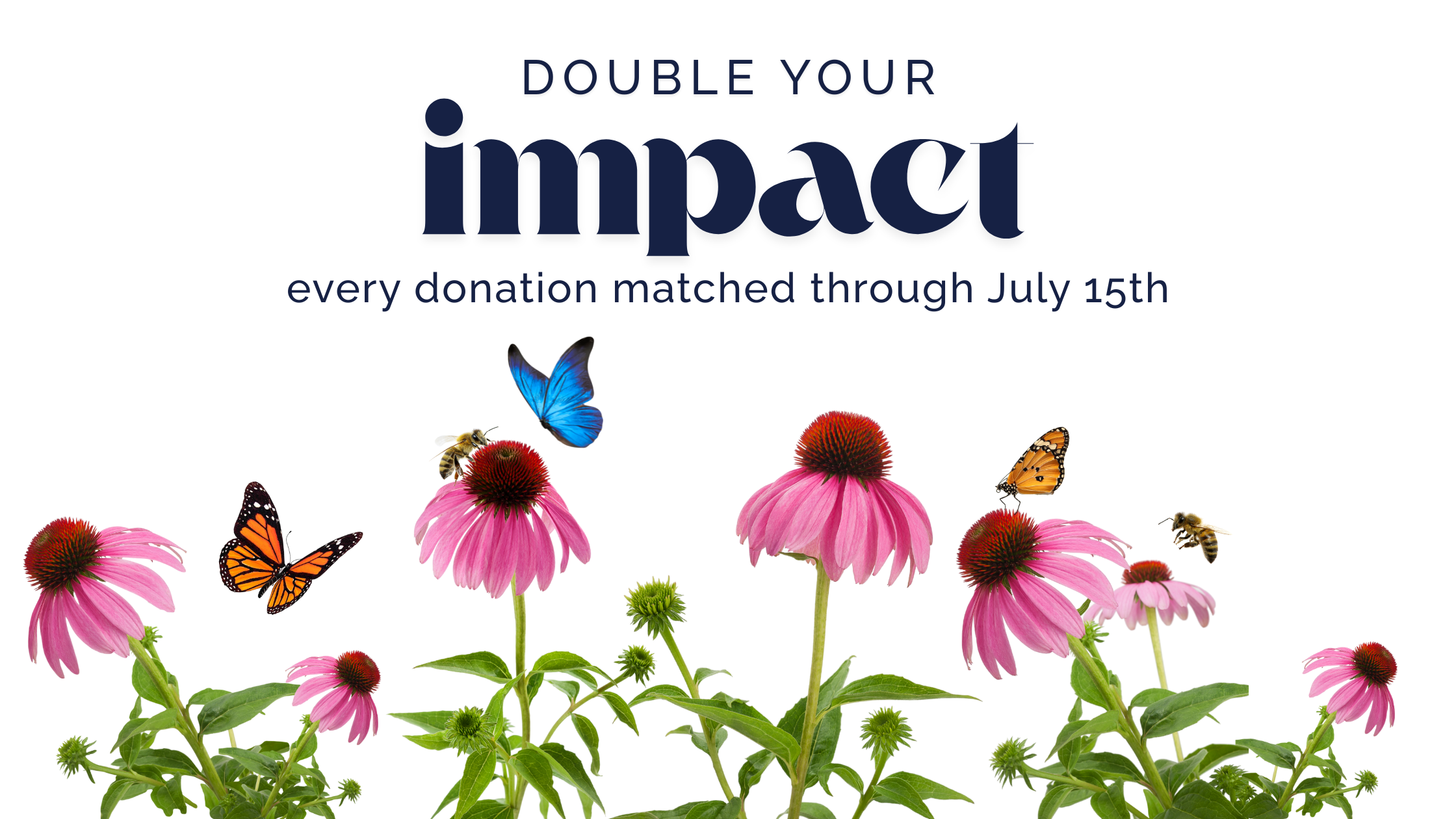STAR NEIGHBORHOODS
There are currently 16 registered STAR Neighborhoods:
- ‘A’ Neighborhood
- Armour Rd & Neighbors
- Bouvant/White Oak
- Caldwell Park
- Constitution Hill
- Deer Path-Clover
- Ewing Guyot & Neighbors
- Griggs Farm
- Grover Gang
- Harrison Park
- Institute Neighbors
- Laurel & Mt. Lucas
- Princeton Community Village
- Stony Brook
- Wheatsheaf Lane
- Witherspoon Jackson
Who’s next? Learn more about the STAR Neighborhood Program and start your own STAR Neighborhood!
Past Projects
Here are examples of past projects organized by STAR Neighborhoods:
A Neighborhood
Demonstrate a Low-Waste Celebration: Hosts of the 6/26/19 potluck graciously provided washable plates and cups for this low-waste gathering.
Adopt Neighborhood Storm Drains: Five neighbors — Eliane, Marci, Alan, John and Lucy — began clearing drains in 2019 in order to keep their water drainage system working well. 2020 update — the drain clearing efforts continue!
Host a Leave-the-Leaves Workshop: On 10/19/19, neighbors invited Steve Hiltner of Friends of Herrontown Woods to demonstrate building a leaf corral.
Hard-to-Recycle Collection: In January 2020, neighbors began a monthly collection of used electronics, bottle caps, and dental supplies for contribution to a local school’s waste drives.
Attend a Green Infrastructure Seminar: In February 2020, five neighbors attended “Rain Gardens for Homeowners” hosted by the Watershed Institute.
Join the Neighborhood Buddy Initiative: In March 2020, neighbors distributed flyers for the NBI, backed up by an email to their group.
Promote Home Energy Audits: In July 2020, one neighbor distributed information to neighbors about Home Energy Audits, including why you’d do it, how to learn more, and noting their audit experience.
Perform a Stormwater Analysis: In the winter of 2020, neighbors recruited the Watershed Institute and the Municipal Arborist to analyze the neighborhood’s stormwater and describe potential mitigation strategies and plans for tree planting.
- Hard-to-Recycle Collection: Neighbors organize a monthly collection of bottle caps, dairy cups, prescription bottles, and take-out boxes for contribution to a local plastics #5 collection.
- Materials Collection Event Drives: In January 2021, neighbors gathered supplies to consolidate so only one person needed to drive to the Sustainable Princeton upcycling event.
- Host a Sustainability Block Party: In March 2022, the A-Neighborhood organized a sustainably-minded lantern walk in the evening. Families made lanterns and then toured the neighborhood, checking out an electric vehicle, a native garden, a rain barrel system, leaf corral, and compost setup. Over 35 neighbors attended this fun event.
- Organize a Low-Mow Campaign: In the summer of 2022, the A Neighborhood began to take on a low-mow campaign convincing some neighbors to join the movement many were already undertaking.
Armour Rd & Neighbors
- Host an Electric Vehicle Showcase: At this event, Mimi and Eve encouraged neighbors, friends, and even a dealer to park their EVs for demonstration. Six electric vehicles were on display.
- Provide a ‘Leave your Leaves’ education: At the block party, Quiet Princeton was invited to share their knowledge about alternatives to gas-powered leafblowers, which include raking, electric equipment, mulching leaves with a mower, or creating a compost pile.
- Host a Sustainable Landscaping Tour: As part of this block party, Mimi invited her neighbors to tour her yard, describing her rain garden, collection of electric landscaping equipment as well as a vegetable garden and native plants.
- Host a Climate Change Talk: As part of this block party, Mimi invited her neighbors to an educational and inspiring seminar by C-Change Conversations.
Bouvant/White Oak
- Neighborhood Tree Education: In the spring of 2021, neighbors invited Taylor Sapudar, the municipal arborist, to discuss healthy tree management.
- Adopt Neighborhood Storm Drains: Neighbors began an “adopt a stormwater drain” initiative. As of May 2021, all of the neighborhood drains have been “adopted” by 10+ households.
- Plastics Recycling Update: In the fall of 2021, neighborhood leaders distributed information and alternatives to the #5 plastics collection to their neighbors.
- Material Collection Drives: In the spring of 2022, Cathy collated items from the neighborhood and brought them to our Winter Upcycling Collection.
- Plastic Bag Ban Update: In the spring of 2022, neighborhood leaders distributed information regarding the May deadline for NJ’s plastic bag ban with their neighbors.
- Sustainable Landscaping Update: In the spring of 2022, neighborhood leaders distributed information regarding the new ordinance regarding gas-powered landscaping equipment.
- Hard-to-Recycle Collection: In spring 2022, neighbors continued a monthly collection of bottle caps, dairy cups, prescription bottles, and take-out boxes for contribution to a local plastics #5 collection.
- Hard-to-Recycle Collection: In the fall of 2022, neighbors collectively joined the Terracycle Home program to schedule pickups of hard to recycle plastics.
- Clearing Invasives: In September 2022, neighbors worked together to clear invasive honeysuckle and multiflora rose that was enveloping junipers and trees along Bouvant Rd. by the small stream that runs through the neighborhood.
Caldwell Park
Demonstrate a Low-Waste Celebration: Hosts of the 9/15/19 neighborhood picnic provided washable plates, cups, and silverware, and collected food waste for one family’s chickens.
Neighborhood Tree Planting: At the neighbor’s request, the Watershed Institute provided a planting plan for Caldwell Park to alleviate downstream flooding. The neighborhood then voted to accept the recommendation to plant trees around the border of Caldwell Park and submitted this request to the municipality. In October 2019, four trees were planted, with the plan to plant more in the spring.
Join the Neighborhood Buddy Initiative: In March 2020, neighbors distributed flyers for the NBI, a priority action.
- Hard-to-Recycle Collection: In July 2020, neighbors began a monthly collection of bottle caps, dairy cups, prescription bottles, and take-out boxes for contribution to a local plastics #5 collection.
- Materials Collection Event Drives: In September 2020, neighbors gathered supplies to consolidate so only one person needed to drive to the MCIA hazardous waste collection.
- Establish Low-Maintenance, Low-Mow Areas: In the summer of 2021, neighbors rolled out a large plastic tarp to prepare a 25×75′ area of Caldwell park for a meadow. In the fall of 2021, neighbors pulled up the tarp and smoothed out a 5-6″ layer of compost. Seedlings and seeds of three different native plants were planted. All supplies were purchased using a STAR Neighborhood mini-grant.
- Host a Deer Management Seminar: On November 1, 2021 neighbors invited Jim Ferry, Animal Control Officer, to describe the need for deer management and provide an overview of strategies applicable to the neighborhood.
- Materials Collection Event Drives: In March 2022, neighbors gathered supplies to consolidate so only one person needed to drive to the MCIA hazardous waste collection.
- Maintain Low-Maintenance, Low-Mow Areas: In the spring of 2022, neighbors pulled up an invasion of the non-native pennycress and reseeded the area with more purple coneflowers.
- Host a Neighborhood Yard Sale: In the fall of 2022, 15 households got together to host a neighborhood yard sale. They jointly advertised the event (newspaper & social media) but each managed their own sales in their driveway.
Constitution Hill
Demonstrate a Low-Waste Celebration: Hosts of the 9/15/19 neighborhood picnic provided washable plates, cups, and silverware, and collected food waste for one family’s chickens.
Neighborhood Tree Planting: At the neighbor’s request, the Watershed Institute provided a planting plan for Caldwell Park to alleviate downstream flooding. The neighborhood then voted to accept the recommendation to plant trees around the border of Caldwell Park and submitted this request to the municipality. In October 2019, four trees were planted, with the plan to plant more in the spring.
Join the Neighborhood Buddy Initiative: In March 2020, neighbors distributed flyers for the NBI, a priority action.
- Hard-to-Recycle Collection: In July 2020, neighbors began a monthly collection of bottle caps, dairy cups, prescription bottles, and take-out boxes for contribution to a local plastics #5 collection.
- Materials Collection Event Drives: In September 2020, neighbors gathered supplies to consolidate so only one person needed to drive to the MCIA hazardous waste collection.
- Establish Low-Maintenance, Low-Mow Areas: In the summer of 2021, neighbors rolled out a large plastic tarp to prepare a 25×75′ area of Caldwell park for a meadow. In the fall of 2021, neighbors pulled up the tarp and smoothed out a 5-6″ layer of compost. Seedlings and seeds of three different native plants were planted. All supplies were purchased using a STAR Neighborhood mini-grant.
- Host a Deer Management Seminar: On November 1, 2021 neighbors invited Jim Ferry, Animal Control Officer, to describe the need for deer management and provide an overview of strategies applicable to the neighborhood.
- Materials Collection Event Drives: In March 2022, neighbors gathered supplies to consolidate so only one person needed to drive to the MCIA hazardous waste collection.
- Maintain Low-Maintenance, Low-Mow Areas: In the spring of 2022, neighbors pulled up an invasion of the non-native pennycress and reseeded the area with more purple coneflowers.
- Host a Neighborhood Yard Sale: In the fall of 2022, 15 households got together to host a neighborhood yard sale. They jointly advertised the event (newspaper & social media) but each managed their own sales in their driveway.
Griggs Farm
Welcome to our newest STAR Neighborhood!
Develop a Neighborhood Communications Network: An email list currently exists, but the neighborhood hopes to expand it and include phone numbers.
Establish Leadership and Goals: Jordan and David are leaders of the Griggs Farm neighborhood. Goals include: Improve the community by enhancing offerings and space at the local park (e.g. seating, planting, etc.) – David Anderson (Resident) and improving the cleanliness of the Griggs Farm neighborhood grounds by addressing cigarette butts and other trash
- Park Beautification: The Griggs Farm Neighborhood recently installed a new bench and picnic table for residents to enjoy in Maidenhead Road Park.
Grover Gang
Host a Home Energy Audit Seminar: On 5/9/19, Scott Fischer of Ciel Power was invited to share information about home energy audits with this neighborhood.
Host a Neighborhood Buddy Discussion: On 9/27/19, Councilman David Cohen was invited to share ideas and discussion behind the Neighborhood Buddy program.
- Join the Neighborhood Buddy Initiative: In April 2020, neighbors distributed flyers for the NBI, a priority action.
Harrison Park
- Hard-to-Recycle Collection: In the fall of 2020, neighbors began a monthly collection of bottle caps, dairy cups, prescription bottles, and take-out boxes for contribution to a local plastics #5 collection.
Institute Neighbors
- Adopt Neighborhood Storm Drains: Starting a campaign to encourage neighbors to adopt a storm drain.
Laurel & Mt. Lucas
- Organized a Neighborhood Native Plant Order: About 8 households pooled their orders together to make a bulk order of 300 native plants for their neighborhood.
- Adopt Neighborhood Storm Drains: Neighbors began clearing drains in 2020 in order to keep their water drainage system working well. Their goal is to perform this cleanup once every season and determine if more is needed.
- Organized a Native Tree Distribution: Using mini-grant funding, neighbors planted 25 new trees in the neighborhood.
Princeton Community Village
- Recycling Improvements: After identifying recycling contamination as a serious problem, PCV worked with Waste Management to bring in improved signage and new lids to their dumpsters.
- Recycling 101: In October 2020, PCV hosted a webinar, inviting Sustainable Princeton and Waste Management to share recycling information with the community.
- Recycling Poster Contest: During the Fall of 2020, PCV hosted a recycling poster contest for students in Grades K to 12.
- Insulation Improvements: Neighbors were concerned about energy loss when air-conditioning slots were not filled, prompting management to send out notices of how to request a work order to insulate these areas.
- Recycling 101: In May 2022, PCV hosted a webinar, inviting Sustainable Princeton and Waste Management to share recycling information with the community.
- Community Yard Sale: On 9/17/22, PCV organized a community yard sale.
- Planted Native Plants: As part of the Native Plant distribution, neighbors planted 50 plugs in a garden bed.
Stony Brook
- Join the Neighborhood Buddy Initiative: In March, neighbors distributed flyers for the NBI, a priority activity.
- Neighborhood Tree Q & A: In October 2020, Stony Brook organized a Q & A with Princeton’s Municipal Arborist.
- Utility Bill 101: In December 2021, a Stony Brook resident created a video for his neighbors explaining his utility bill, including the municipality’s contract with Constellation and his option for Community Solar.
- Meadow Tour: In September 2022, Mercy and Tim gave a tour of their meadow, bringing out about 20 people and inspiring a few neighbors to start mini-meadows of their own. Mercy created a flier explaining what plants they have and their progress.
Wheatsheaf Lane
- Perform a Stormwater Analysis: In 2021, neighbors recruited the Watershed Institute to provide an analysis of stormwater issues and potential mitigation strategies.
Witherspoon Jackson
- Join the Neighborhood Buddy Initiative: In March and April, neighbors distributed flyers for the NBI, a priority activity.
- Perform a Stormwater Analysis: In the Fall of 2020, neighbors recruited the Watershed Institute to provide an analysis of stormwater issues and potential mitigation strategies.
- Promote Stormwater Planters to Neighborhoods: In August, neighbors worked with SP to secure funding and promoted free stormwater planters to the neighborhood, a priority activity.
- Install Stormwater Planters in the Neighborhood. In the Fall of 2021, neighbors installed ten stormwater planters, filling them with rocks, soil, and native plants. They also ensured stormwater diverters were properly installed on gutters and connected to the boxes.
Mini-Grants Awarded
Special congratulations go to the following neighborhoods that were awarded STAR Mini-Grants for $500 to fund their sustainability projects.
- Stony Brook used the funds to plant monarch butterfly waystations.
- Laurel & Mt. Lucas used the funds to host two food-waste workshops. Read more about the project!
- Witherspoon Jackson Neighborhood used the funds for 10 stormwater planters for the neighborhood. Read more about the project!
- Caldwell Park used the funds to build a meadow on adjacent municipal land. Read more about the project!
- Laurel & Mt. Lucas used the funds to purchase and distribute native trees to their neighborhood.
- Princeton Community Village used the funds to provide recycling bins to each of its residents.
Does your S.T.A.R. Neighborhood want to apply for mini-grant funding? Email star@sustainableprinceton.org for the application.
NEED HELP?
Sustainable Princeton is here for you. We want to see your neighborhood succeed, so please ask for support and guidance at any step along the way. We can help brainstorm actions, find resources, and organize tours and speakers – just ask!
For more information, please email Sustainable Princeton’s Project Manager, contact Lisa Nicolaison.
